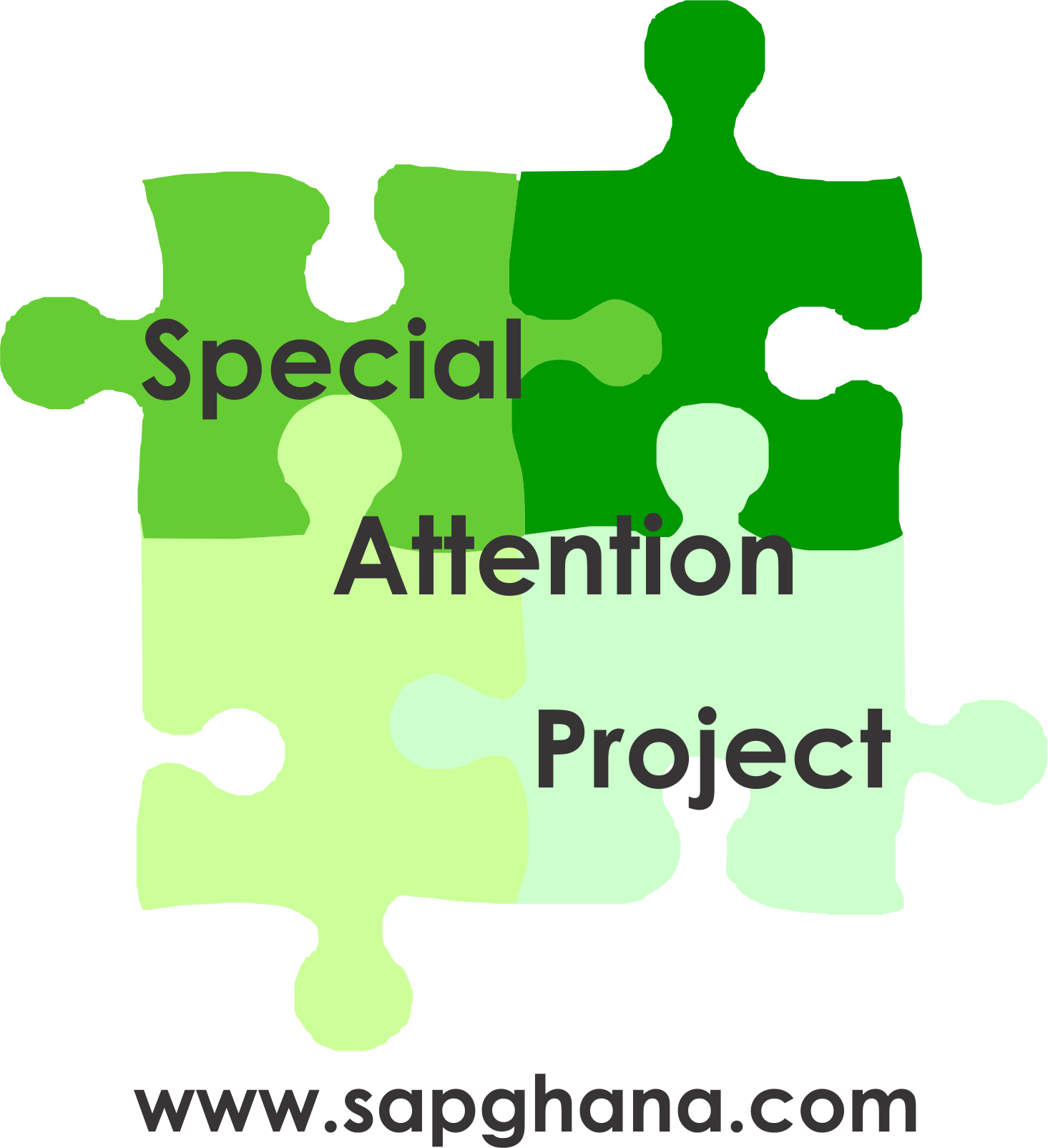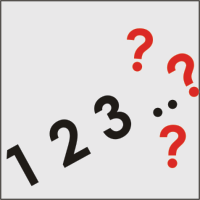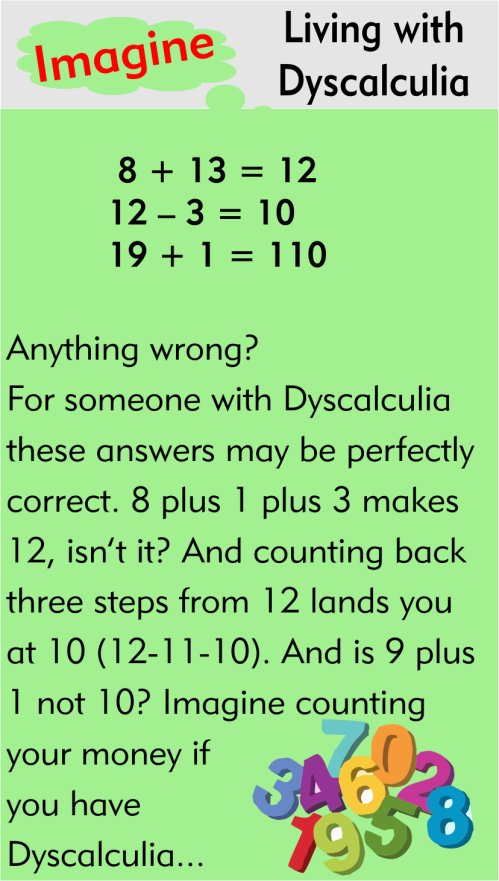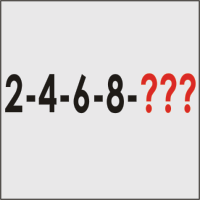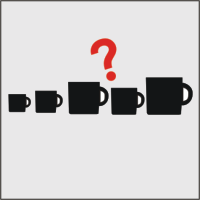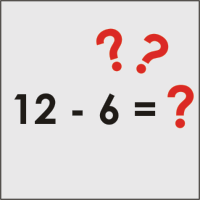What is Dyscalculia?
Dyscalculia affects development of skills in numbers and mathematics.
If your child has difficulties in mathematics but * is intelligent, * can see and hear well, * has been going to school like other children, and * has no problems in reading, then he or she may have Dyscalculia.
|
|
Dyscalculia affects the ability to understand numbers and do basic mathematics. Persons with Dyscalculia have problems with addition, subtraction, multiplication and division.
Someone who can do basic maths but has difficulty in higher maths like algebra is not likely to have Dyscalculia. He or she may just have low talent for maths.
There are currently no diagnostic Dyscalculia tests that are valid for Ghana.
Signs of Dyscalculia when a child is beginning to learn numbers: - difficulty learning to count and remembering number symbols - difficulty connecting numbers to quantity - difficulty recognising patterns – for example 2,4,6,8,.... - difficulty sorting and categorising - avoiding activities & games that involve numbers
| Signs of Dyscalculia when a child is progressing in maths: - difficulty carrying out mathematical operations (addition, subtraction, multiplication, division) - difficulty understanding mathematics concepts; for example how subtraction relates to addition - difficulty writing a mathematics problem in an organised way - difficulty with decimals - counting on fingers long after other children have stopped
|
When your Child has difficulties in mathematics...
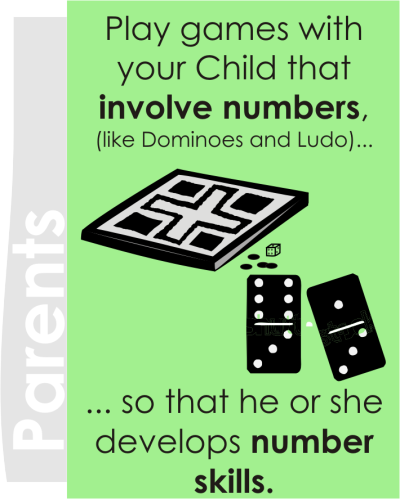 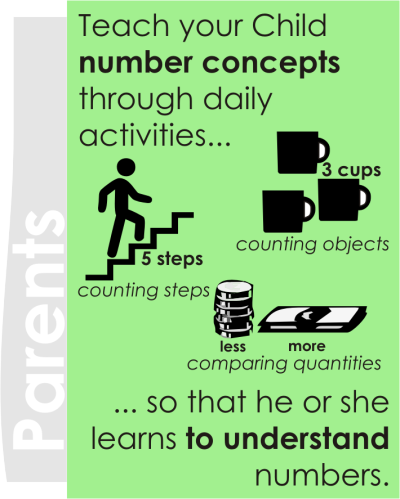 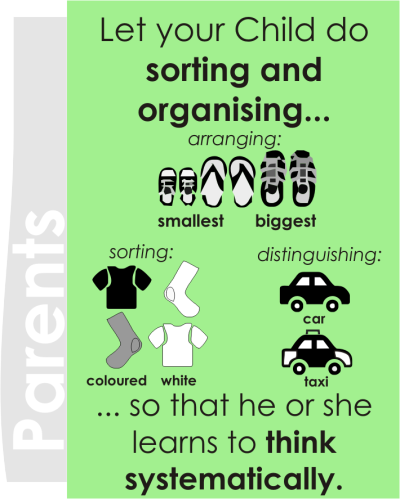 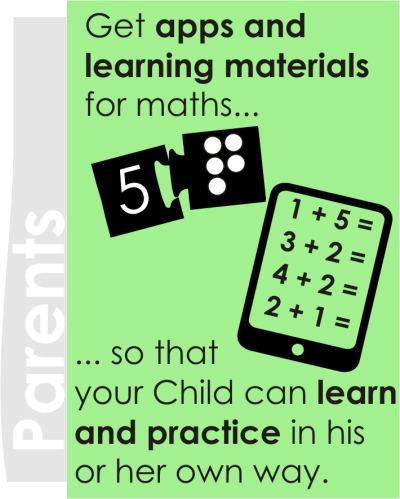 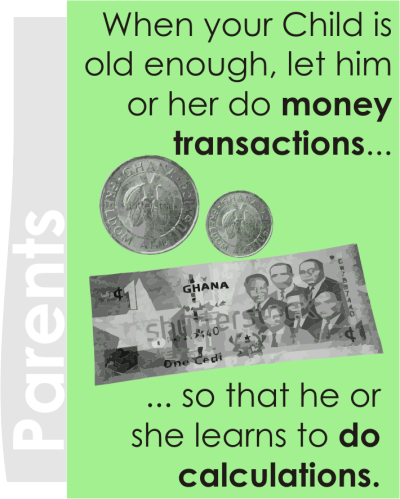 |
When you have Pupils with maths difficulties in your classroom...
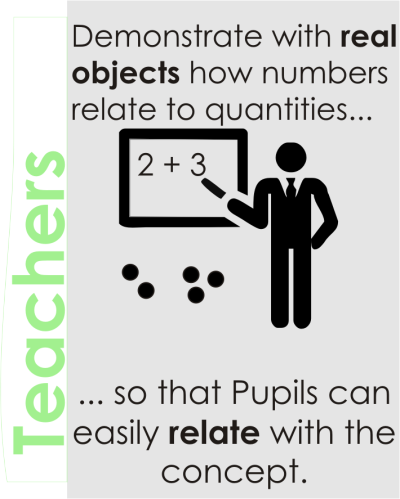 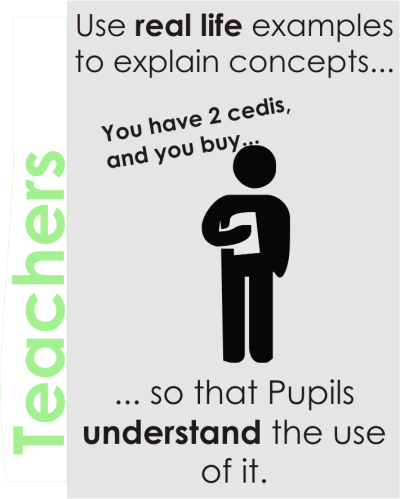 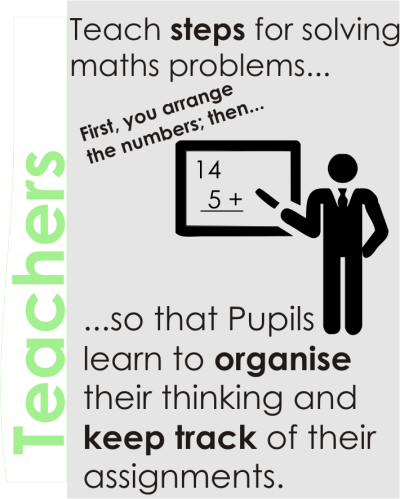 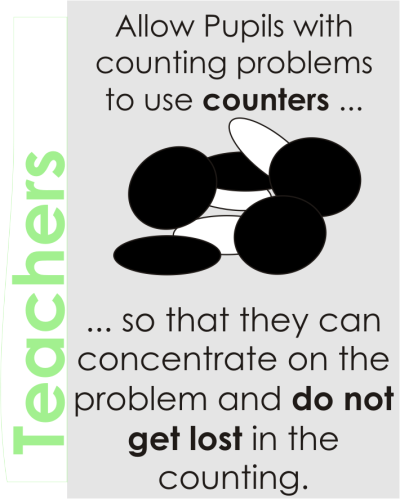 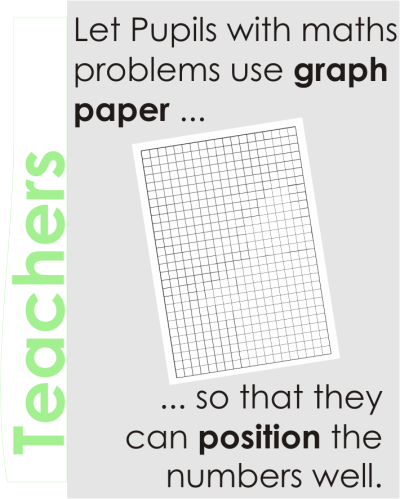 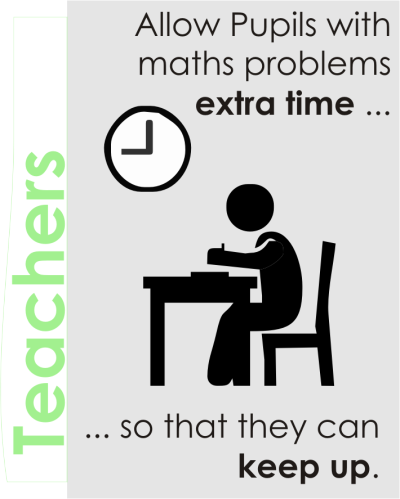 |
What schools can do to become inclusive for Pupils with mathematics difficulties:
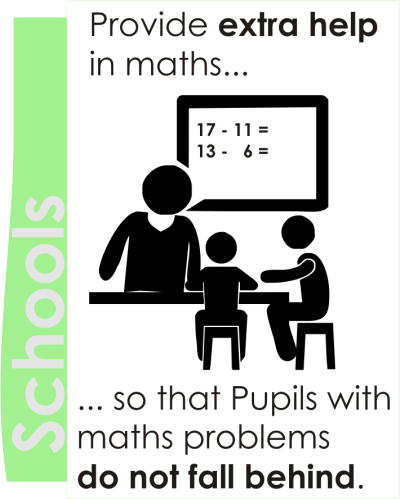  |

Donate via mobile:
+233 (0) 544-700505
